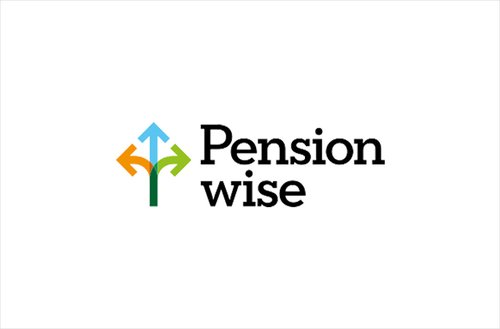- How much is your house worth?
- Do you have any other savings and investments?
- Are you expecting any other large windfalls or inheritances?
- Do you have any other valuable assets?
- Have you made a will or reviewed and updated it recently?
Investment accounts
Adult accounts
Child accounts
Choosing Fidelity
Choosing Fidelity
Why invest with us Current offers Fees and charges Open an account Transfer investments
Financial advice & support
Fidelity’s Services
Fidelity’s Services
Financial advice Retirement Wealth Management Investor Centre (London) Bereavement
Guidance and tools
Guidance and tools
Choosing investments Choosing accounts ISA calculator Retirement calculators
Shares
Share dealing
Choose your shares
Tools and information
Tools and information
Share prices and markets Chart and compare shares Stock market news Shareholder perks
Pensions & retirement
Pensions, tax & tools
Saving for retirement
Approaching / In retirement
Approaching / In retirement
Speak to a specialist Creating a retirement plan Taking tax-free cash Pension drawdown Annuities Investing in retirement Investment Pathways
In this section

Legacy planning with a SIPP
Why your pension is a great place to start when thinking about what to leave your loved ones.
Important information - The value of investments and the income from them can go down as well as up so you may not get back what you invest. Eligibility to invest in a SIPP and tax treatment depends on personal circumstances and all tax rules may change in the future. You cannot normally access your SIPP until age 55 (57 from 2028). It’s important to understand that pension transfers are a complex area and may not be suitable for everyone.
In the Budget on the 30 October 2024 the government announced changes to Inheritance Tax rules that will mean personal pensions will be subject to Inheritance Tax from 6 April 2027. The rules have not yet been finalised and revisions could happen before they come into force.
Legacy planning at a glance
In this section, we take a much closer look at your pension and how your loved ones can benefit from it when you're no longer around.
Pensions can be a great way to leave something to those closest to you, as they often sit outside your estate, which means they won’t normally count towards your £325,000 inheritance tax allowance (£650,000 for married couples or civil partnerships).
If you have saved into your pension plan you have a number of options to consider when deciding how much to leave your loved ones. We’ve highlighted these below:
Leave it invested
If you don't need your pension to provide you with an income you can leave it invested. However, depending on how old you are when you die your family may have to pay tax on any money they withdraw after your death.
Take regular income or lump sums
If you decide to withdraw money from your pension regularly or in lump sums, whatever remains when you die can still be left to your family.
What this means for the tax they will pay
If you die before age 75
- Anything left in your pension can be paid to your beneficiaries
- This could be paid as a lump sum or they can take regular withdrawals
- Generally, in either case it will be tax free
If you die after age 75
- Anything left in your pension can be paid to your beneficiaries
- This could be paid as a lump sum or they can take regular withdrawals
- Any lump sum or withdrawals paid out will be subject to tax based on the individual tax position of the beneficiary
Things to consider
There are a number of factors that may affect how much you are able to leave to your loved ones.
You should also consider updating your 'Expression of Wish' form if you haven't looked at it for a while. Generally, this should be done every 3 years to help the scheme administrators determine who to pay your pension benefits to if you die.
For your 'estate' (your property, money and possessions) to be distributed when you die, an application for the legal right to deal with your estate will need to be made to the local Probate Registry.
Family homes and inheritance tax
In addition to the existing £325,000 nil rate band, known as NRB, a dedicated main residence nil rate band, known as RNRB, is intended to protect the family home from Inheritance Tax. This applies if a home has been left to children (including adopted, foster or stepchildren) or grandchildren (family homes are transferred to spouses and civil partners tax-free). In addition, if your estate is worth less than your threshold when you die and you're married or in a civil partnership, any unused threshold can be added to your partner’s threshold. This means the tax-free threshold for the surviving spouse could be as much as £1 million.
The RNRB threshold amount for the 2024/2025 tax year is £175,000.
The RNRB may also be available to you if you’ve downsized or sold your home on or after 8 July 2015. This allows assets of an equivalent value to be passed on to your direct descendants.
For estates with a net value of over £2m, the RNRB will be withdrawn at a rate of £1 for every £2 over the £2m threshold.
Growing your wealth and passing it on
Your pension is just one way of passing on your wealth. It's good to understand what else is involved so that you can take comfort in the fact that you're doing all you can now, for when you're no longer here. There's more about this in our 'passing on wealth' section.

We can help
If you’re considering transferring a pension to help with your legacy planning, you should seek advice first. We offer advice that’s in your best interests, even if it means recommending that you leave your money where it is.
Call us on 0800 368 6882, Monday to Friday, 9am - 5pm.
Fidelity's retirement service
Pension Wise
The Government offers a free and impartial guidance service, for those age 50+, to help you understand your options at retirement. This is available via the web, telephone or face-to-face through the Pension Wise service which is now part of MoneyHelper; the easy way to get free help for all your pension and money choices. You can find out more by going to moneyhelper.org.uk or call them on 0800 011 3797.
Important information: This information is not a personal recommendation for any particular product, service or course of action. It’s important to understand that pension transfers are a complex area and may not be suitable for everyone. Before going ahead with a pension transfer, we strongly recommend that you undertake a full comparison of the benefits, charges and features offered. To find out what else you should consider before transferring, please read our pension transfer factsheet. If you are in any doubt about whether a pension transfer is suitable for your circumstances we strongly recommend that you seek advice from one of Fidelity’s advisers or an authorised financial adviser of your choice.

Look after future you, today. Plus get cashback!
If you’ve got pensions spread across different providers, bringing them together with Fidelity could help you take control and get your money working harder. Plus get £500 to £2,500 cashback. Exclusions, T&Cs apply.
Go to offerCash Back Offer – terms and conditions
This Cash Back Offer (the “Offer”) is available when you apply to transfer your pension(s), ISAs or other investment account assets between 2nd December 2024 and midnight on 1st April 2025.
- The promoter of this offer is Financial Administration Services Limited (“Fidelity”), Beech Gate, Millfield Lane, Lower Kingswood, Tadworth, Surrey, KT20 6RP.
- Subject to section 5, the Offer is available to anyone who completes a transfer of their assets from other providers to Fidelity Personal Investing. This offer is not open to those that transfer via an adviser or intermediary. To transfer assets, you must submit a correctly completed transfer application form online or by paper by 1 April 2025.
- Cash Back will be paid in the amounts noted in the table in section 9. If you transfer less than £50,000 you will not receive any Cash Back. The minimum transfer value for all products is £100. However, if you are transferring a pension from another provider and you’re immediately going to start taking money from it, known as pension drawdown, the minimum transfer value is £50,000.
- The following types of transfer will qualify for the Offer:
a. Cash transfer within ISAs and pension products – If you transfer in cash within ISAs and pensions, the provider you are transferring from will sell your investments and send the proceeds directly to us. We will hold them as cash within your account until you decide what you would like to invest in.
b. Re-registration – With this type of transfer, you can keep the same investments as long as they're available on our platform. Where required, we will work with your existing provider to convert your units into a share class we can support before transferring them to us. Please note that a further conversion may be required to move you into the cheapest available share class on our platform. If a cheaper share class is available, we will also convert any existing holdings of that share class in your account. During this time, you will not be out of the market, and you may temporarily be converted into a share class with higher charges to facilitate the transfer. The share class conversion activity might take a few days and you will probably have a different number of units in the fund after you move as the prices of different share classes of the same fund are normally different.
If you hold an investment in a pension or ISA that is not available through our platform or is otherwise unable to be re-registered* it will be moved to us as a cash transfer (see above). Any investments held outside of a pension or ISA that cannot be re-registered will not be transferred to us. They will remain with the previous provider and will not count towards your total transfer value for the Offer. A re-registration does not count as a “disposal” for capital gains tax purposes, even if we switch your investment into a different share class. Please note that the minimum Self-Invested Personal Pension (SIPP) re-registration value is £100.
*Re-registration is not available for some products on the Fidelity Investment Platform. For example, a number of offshore funds cannot be re-registered. You can check what assets are available on our platform
here - This Offer excludes:
a. transfers of assets held in a product/account provided or administered by any company within Fidelity’s group of companies including, without limitation, certain legacy products such as the Fidelity Personal Pension and Fidelity Adviser Solutions SIPP provided by Standard Life, and the EBS SIPP;
b. transfer of shares from Fidelity Stock Plan Services;
c. transfers of assets currently held through Fidelity Adviser Solutions (formerly FundsNetwork);
d. transfers of any defined contribution pension scheme investments held with, or in relation to, a current employer through, or administered by, a Fidelity group company;
e. transfers of any defined benefit, safeguarded benefit or otherwise guaranteed pensions;
f. transfers which are linked to an adviser or intermediary;
g. transfer of Junior SIPPs, Junior ISAs, or Lifetime ISAs; and
h. the lodgement of certificated shares - The Offer will also not apply to assets that are currently held in a product/account provided or administered by any company within Fidelity’s group of companies which are transferred to another provider and then moved to Fidelity Personal Investing.
- Any other new investments, subject to the exclusions in paragraphs 5 and 6, will not qualify for the Offer.
- Any transferred assets will be subject to the applicable client terms for the product your assets have been transferred to.
- The amount of your Cash Back payment will be determined by reference to the “Total Transfer Value” as set out in the table below. This is based on the sum of all transfers applied for during the Offer period and will be calculated as at the date of completion of the transfer of your eligible assets (“Transfer Date”). If you transfer more than one product the Transfer Date will be the date when all the transfers have been completed.
Total Transfer Value
Cash Back Amount
£50,000 - £74,999
£500
£75,000 - £99,999
£750
£100,000 - £249,999
£1,000
£250,000 - £499,999
£1,250
£500,000 - £749,999
£1,500
£750,000 - £999,999
£1,750
£1,000,000 or over
£2,500
- Cash Back payments will be paid to your Cash Management Account (CMA) within 90 days following closure of the Offer (1 April 2025). If the transfer of all of your eligible assets has not completed by then, we will pay within 90 days of your Transfer Date. The CMA is a separate account in your name that helps manage cash. The Cash Back can be kept in your CMA for fee collection, withdrawn or moved into whichever Fidelity Personal Investing account you choose. If moved into an ISA or SIPP, it will count towards your annual allowance.
- We ask that the assets you move to us as part of this Offer be held with us for at least 18 months after your Transfer Date and must not be linked to any adviser or intermediary other than a Fidelity adviser during this period. If you transfer or re-register your assets to another provider within this 18-month period, Fidelity reserves the right to reclaim any Cash Back payment that was made to you as part of this Offer. For the avoidance doubt, if during this period you link to a Fidelity adviser and your assets are transferred to Fidelity Adviser Solutions (formerly FundsNetwork) this does not constitute a transfer to another provider. Fidelity may reclaim any Cash Back by withholding an amount prior to transferring or re-registering your assets to another provider. We will not reclaim any Cash Back from assets within a SIPP, other pension or ISA. Withdrawals from your account/s or income payment will not count as transfers for the purposes of this condition and will not result in our reclaiming your Cash Back payment.
We promote offers on a regular basis. However, it is important that you take enough time to decide whether transferring your investment(s) to us is right for you. If you need more time and wish to qualify for an offer, please wait until the next offer period.
Issued by Financial Administration Services Limited, which is authorised and regulated in the UK by the Financial Conduct Authority. Fidelity, Fidelity International, the Fidelity International logo and the F symbol are trademarks of FIL Limited.
UKM1124/388536/CSO12452/010425
Policies and important information
Accessibility | Conflicts of interest statement | Consumer Duty Target Market | Consumer Duty Value Assessment Statement | Cookie policy | Diversity, Equity & Inclusion | Diversity, Equity & Inclusion Reports | Doing Business with Fidelity | Investing in Fidelity funds | Legal information | Modern slavery | Mutual respect policy | Privacy statement | Remuneration policy | Staying secure | Statutory and Regulatory disclosures | Whistleblowing programme
Please remember that past performance is not necessarily a guide to future performance, the performance of investments is not guaranteed, and the value of your investments can go down as well as up, so you may get back less than you invest. When investments have particular tax features, these will depend on your personal circumstances and tax rules may change in the future. This website does not contain any personal recommendations for a particular course of action, service or product. You should regularly review your investment objectives and choices and, if you are unsure whether an investment is suitable for you, you should contact an authorised financial adviser. Before opening an account, please read the ‘Doing Business with Fidelity’ document which incorporates our client terms. Prior to investing into a fund, please read the relevant key information document which contains important information about the fund.
This website is issued by Financial Administration Services Limited, which is authorised and regulated by the Financial Conduct Authority (FCA) (FCA Register number 122169) and registered in England and Wales under company number 1629709 whose registered address is Beech Gate, Millfield Lane, Lower Kingswood, Tadworth, Surrey, KT20 6RP.

